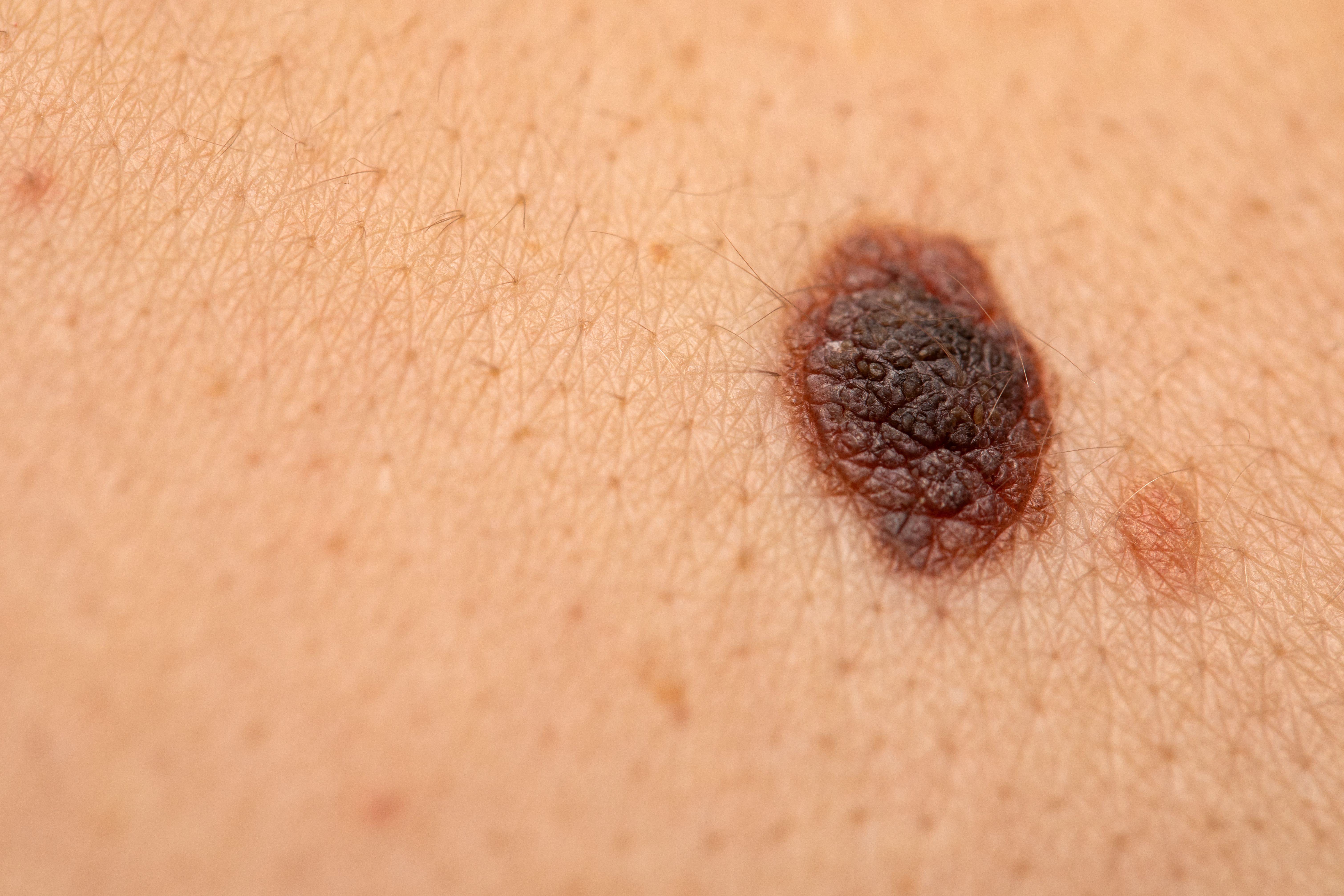- Case-Based Roundtable
- General Dermatology
- Eczema
- Chronic Hand Eczema
- Alopecia
- Aesthetics
- Vitiligo
- COVID-19
- Actinic Keratosis
- Precision Medicine and Biologics
- Rare Disease
- Wound Care
- Rosacea
- Psoriasis
- Psoriatic Arthritis
- Atopic Dermatitis
- Melasma
- NP and PA
- Skin Cancer
- Hidradenitis Suppurativa
- Drug Watch
- Pigmentary Disorders
- Acne
- Pediatric Dermatology
- Practice Management
- Prurigo Nodularis
- Buy-and-Bill
News
Article
Progression-Free Survival of BRAF-Mutant Melanoma Improved by Combination Therapy
Author(s):
A combined treatment regimen of encorafenib and binimetinib led to improved progression-free survival, overall response rate, and tolerability in patients with advanced BRAF-mutant melanoma.
Encorafenib 300 mg once daily and binimetinib 45 mg twice daily (COMBO300) improved progression-free survival (PFS), overall response rate (ORR), and tolerability compared to encorafenib 300 mg once daily (ENCO300) for individuals with advanced BRAFV600-mutant melanoma, according to the second part of results from the phase 3 COLUMBUS trial (NCT01909453).1
Ocskay Mark/AdobeStock

The findings, published in the Journal of Clinical Oncology, also confirmed the efficacy and safety of adding binimetinib to the regimen.1
According to a review published in Medical Sciences, the BRAF mutation is presented in half of melanoma cases.2 Typically, the mutations are targeted with oral BRAF/MEK inhibitor combinations as evident with the COLUMBUS trial.1,2
In the United States, the incidence of melanoma is not expected to peak until between 2022 and 2026, with fewer than 40% of Americans reporting adequate protection from ultraviolet rays, according to investigators of the Medical Science review. Adequate protection included sun avoidance from 10 am to 4 pm and regular application of a broad-spectrum sunscreen with an SPF of greater than 30.2
In part 1 of the study, investigators found that encorafenib 450 mg once daily and binimetinib 45 mg twice daily (COMBO450) improved PFS compared to vemurafenib 960 mg twice daily, which was the primary endpoint. Although it also demonstrated improved PFS over ENCO300, a key secondary endpoint, the results were not statistically significant. The FDA requested that the investigators evaluated the contribution of binimetinib while maintaining the same dosage of encorafenib, at 300 mg.1
Part 2 of the study focused on these changes to determine the benefits of COMBO300. Individuals in the study were assigned 3:1 to either COMBO300 or ENCO300. Per the protocol, data on ENCO300 in both parts were combined for the PFS analysis. The analysis also included ORR, overall survival (OS), and safety. Investigators included 258 individuals in the COMBO300 group whereas a total of 280 individuals received ENCO300 from both parts 1 and 2.1
Investigators found that median PFS for COMBO300 was 12.9 months compared with 9.2 months for ENCO300. The ORR was 68% and 51%, respectively, with the median duration of confirmed responses being 15.4 months for the COMBO300 arm and 14.8 months for the combined ENCO300 arm.1 In the COMBO300 arm, the median OS was 27.1 months vs 22.7 months for ENCO300.
Furthermore, there were fewer grade 3 and 4 adverse events (AEs) with COMBO300 compared to ENCO300, with COMBO300 also showing a greater relative dose intensity.1
The most frequently reported AEs in the COMBO300 arm included diarrhea, arthralgia, nausea, fatigue, and blood creatine phosphokinase increases. For those in the ENCO300 arm, the AEs included alopecia, arthralgia, palmar-plantar erythrodysesthesia syndrome, hyperkeratosis, nausea, headache, myalgia, pruritus, fatigue, dry skin, rash, and vomiting.1
Investigators concluded that by maximizing the BRAF inhibition, the regimen is more effective than the COMBO450, which is the approved dosage, stating that the COMBO300 should be used due to the evidence of this study.1
References
- Ascierto PA, Dummer R, Gogas HJ, Arance A, et al. Contribution of MEK inhibition to BRAF/MEK inhibitor combination treatment of BRAF-mutant melanoma: part 2 of the randomized, open-Label, phase III COLUMBUS trial. J Clin Oncol. 2023;JCO2202322. doi:10.1200/JCO.22.02322
- Saginala K, Barsouk A, Aluru JS, Rawla P, Barsouk A. Epidemiology of melanoma. Med Sci (Basel). 2021;9(4):63. doi:10.3390/medsci9040063
[This article was originally published by our sister publication, Pharmacy Times.]





